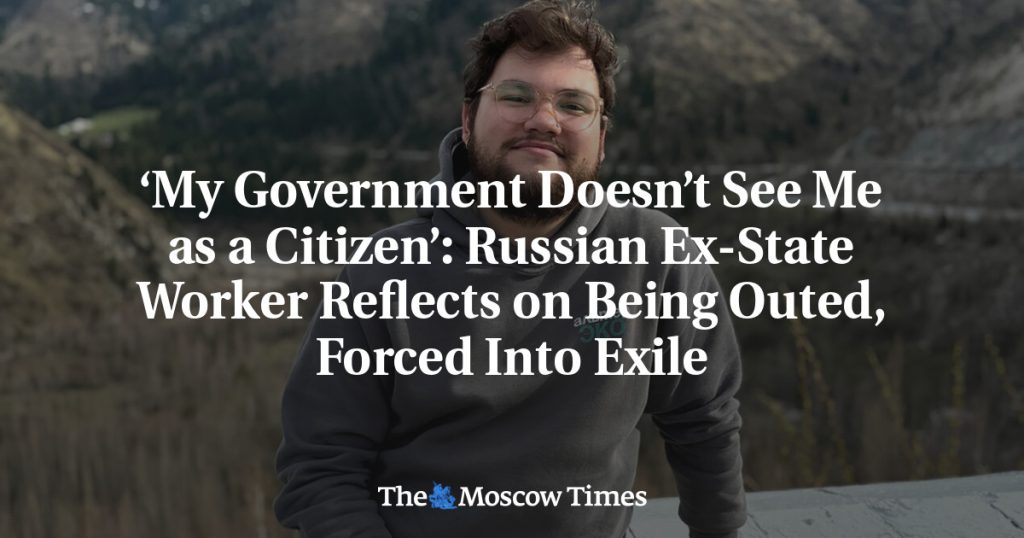Denis Leontovich, a 23-year-old, took a job at the regional youth policy agency in southern Russia’s Samara region in February 2024. Just a few weeks into the job, he resigned and left the country after being outed as gay by a federal lawmaker and receiving threats. State Duma deputy Alexander Khinshtein accused Leontovich of being in a relationship with a man and spreading “gay propaganda,” prompting him to leave the country in a matter of hours to escape the threats. LGBTQ+ rights in Russia have deteriorated since the passage of anti-LGBTQ+ laws, with anyone associated with LGBTQ+ lifestyles or symbols at risk of criminal prosecution.
Leontovich decided to share his story from exile to help others facing similar persecution in Russia. He explained how he was targeted with homophobic harassment on social media and in the press, leading to accusations of extremism. Despite the repressive anti-LGBTQ+ measures in Russia, Leontovich did not anticipate encountering such intense scrutiny at work due to his sexual orientation. His colleagues at the agency were compassionate and supportive, but the situation escalated quickly, leading him to leave the country urgently. He acknowledged the real risks faced by LGBTQ+ individuals in Russia and the importance of standing up against homophobia.
Before the threats and outing, Leontovich viewed his work in the public sector, particularly in youth policy, as an opportunity to promote critical thinking and protect young people from propaganda and hatred. He believed in the importance of educating children with values of humanity and human rights, rather than political propaganda. Despite the risks, he saw his work as a noble cause and a means of resistance against the repressive laws in Russia. Leontovich highlighted the diverse views among public sector employees in Russia, with varying perspectives on the political trajectory of the country.
Leontovich currently resides in France, seeking asylum and sharing his story to raise awareness about LGBTQ+ persecution in Russia. He expressed hope for the French authorities to grant him asylum, allowing him to build a new life and help others in similar situations. Reflecting on his forced emigration, he voiced disappointment that he could not stay longer in Russia to continue making a positive impact. Despite the challenges, he remains hopeful and believes that there are people in Russia working to make a difference. Leontovich emphasized the need for advocacy and support for LGBTQ+ individuals facing persecution in Russia.
The Moscow Times, where Leontovich shared his story, faced challenges due to being labeled as an “undesirable” organization by Russia’s Prosecutor General’s Office. The publication continues to strive for independent journalism in the face of repression. As the journalists at The Moscow Times refuse to be silenced, they rely on the support of readers to continue their work. Through donations and contributions, supporters can help defend open, independent journalism and stand against censorship in Russia. Despite the obstacles, The Moscow Times remains committed to providing accurate and unbiased reporting on Russia and defending press freedom.














